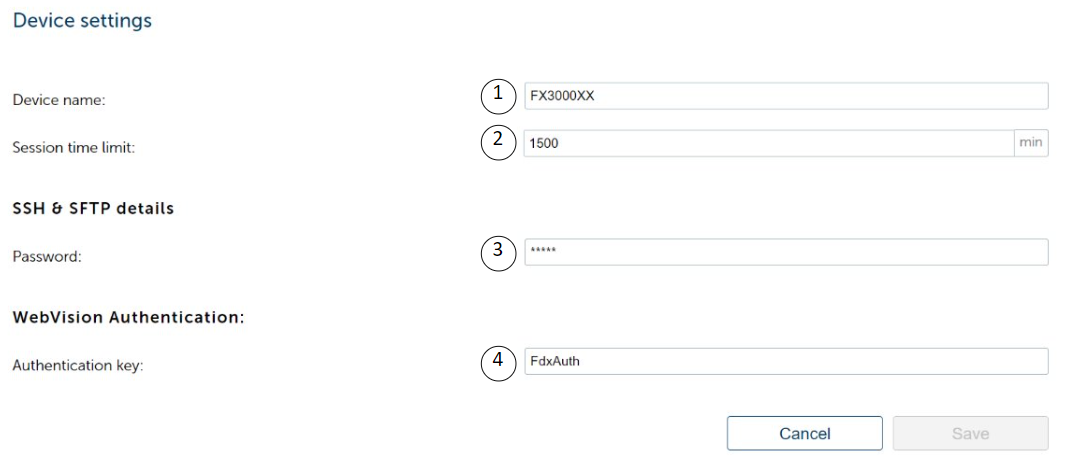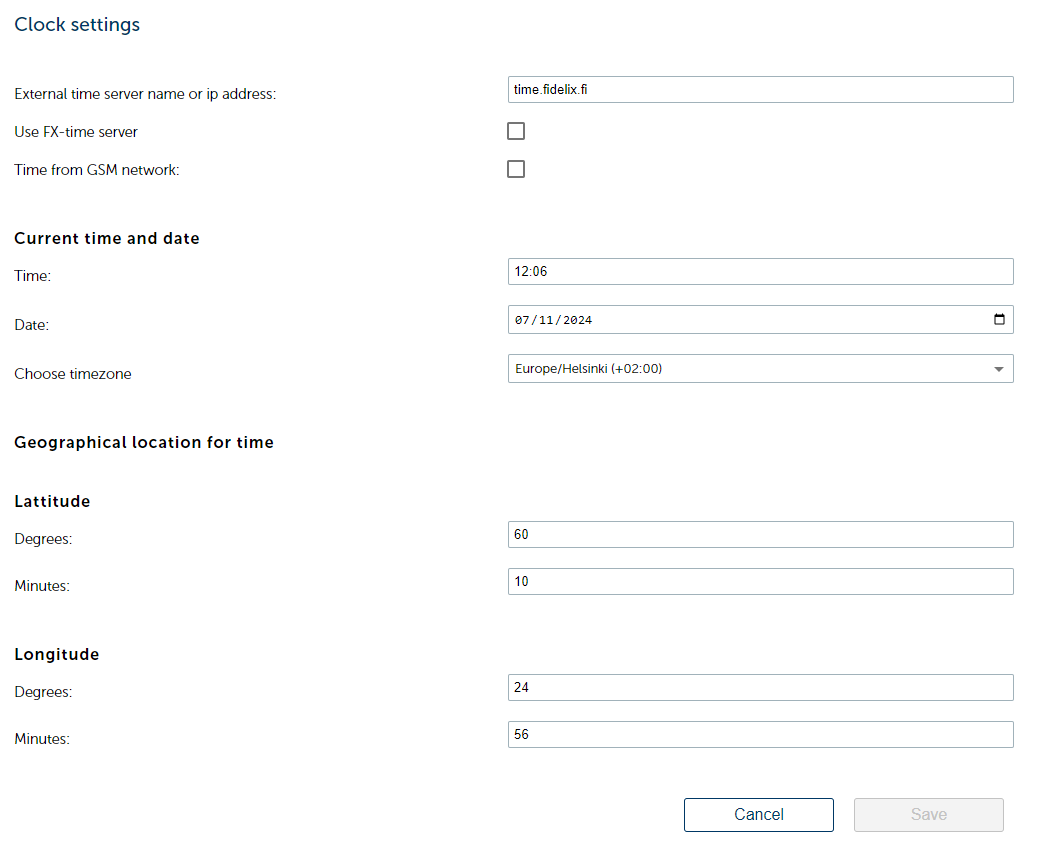System settings#
System settings can be found at: Settings -> System settings.
Backup#
FX-3000-X has a memory card installed by default. The memory card stores backups of the project data. The memory card will hold 10 backups and the oldest backup is deleted automatically.
The backup contains project data and process pictures: DATA and WWW folders.
Backups are automatically created once a week, the night between Sunday and Monday.
Creating backup can be forced by pressing button “Backup” in Settings > System settings.
During backup the controller automatically creates temporary folders: “DeletingThisFolder” or “BackupInProgress”. These folders will be deleted automatically by the controller and can be ignored.
Warning
Do not upload excess symbols to the FX-controller. Upload only symbols used in the project. Huge amounts of excess symbols could slow down the FX-controller.
Device settings#
Device settings. Can be found from Settings -> System settings -> Device settings

Device name: Name can be 29 letters long.
Session time limit: After this time user will be logged out automatically.
SSH and SFTP password. It’s recommended to change this password after installing the FX-3000-X.
WebVision authentication key: Key is used in communication between FX-3000-X and WebVision. Note! This has to be the same in both FX-3000-X and WebVision. Authentication key has been used in global points before version 11.42.00
System status#
System status information can be found from Settings -> System settings -> System status
In beginning of the page there is general information about FX-3000-X.
FX-3000-X can be rebooted by executing reboot device. Rebooting boots the whole operating system.
GSM modem can be used to send alarms. Singnal level gets a value between 0-99.
0 = Error
1-31 = Signal level, a bigger value means a better signal.
99 = No signal at all.
Mobile network
USB dongle connected = Shows if USB dongle is connected.
Mobile network status = Show if mobile network is active or not.
GSM network = Network strength 1(LOW).. 31(High).. 0 = No network
1 = Low
31 = High
0 = No network
RX/TX total(kb) = Indicates how much data has been transfered.
Clock settings#
Clock settings can be found from Settings -> System settings -> Clock settings.

External time server name or ip address: Define used time server.
Use FX-time server: Use another FX-controller as time server.
Time from GSM network: Get’s the data from GSM modem, if one is available.
Current time and date
Time: Time in 24h format. hours:minutes
Date: Date in day/month/year format.
Choose timezone: Select timezone used.
Geographical location for time
Input the geographical location of the FX-Controller. Used to calculate sunrise and sunset times.
Activations#
Following functionalities needs activation to work properly.
Main activation
Bacnet
FXSpider extensions I/O
Without I/O activation FxSpider accepts one Spider I/O unit and two DU10 modules. Modbus devices do not work. These limitations are removed after activation.
INU I/O modules
Tosibox Rediness
Modbus server
EcoSmart
Weather forecast
Getting activation key#
SMS settings#
Coming soon!
Information synchronization#
Note
Synchronization is based on the time of FX-Controller. In order to synchronize data between controller the time needs to be same in both ends.
Synchronizing is enabled for each type in the settings. Selection must be done in every controller. Controller IP addresses are defined in ‘Stations.dat’ file
Each synchronizable data item has also own enable check box (except calendar). When this selection is done in one substation data will be sent to all substations which have corresponding type enabled.
When calendar synchronizing is activated, time stamp is updated to current time and calendar will be updated to other stations. Make sure that you activate station with correct calendar last.
Weather forecast#
If the weather forecast / energy price API is activated, the controller is able to receive weather forecast information and SPOT energy price information. The received information is shown in a table format in the “weather forecast” and “energy prices” tabs correspondingly.
Energy prices can be read to IEC-programs. See functions here: Other functions.